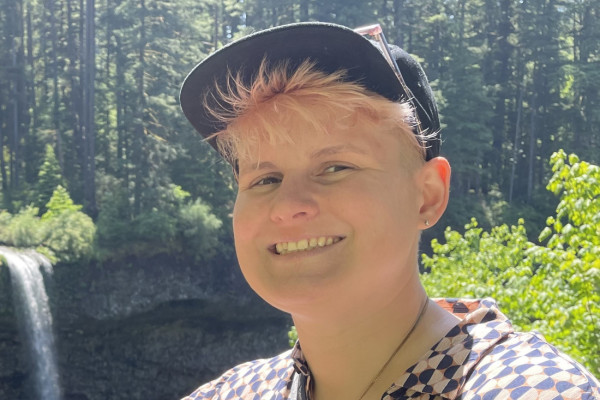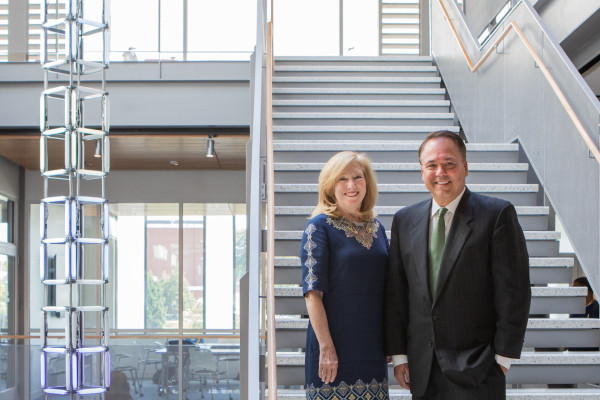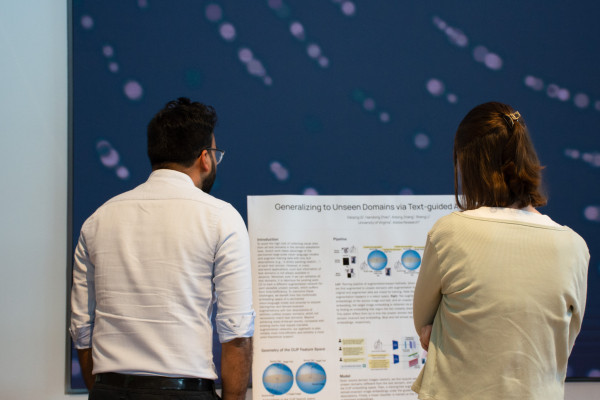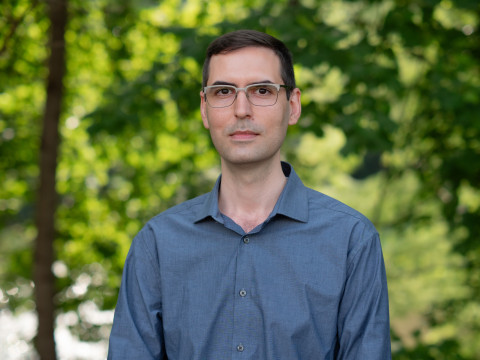
School of Data Science Celebrates ‘Vital’ Role of Postdocs
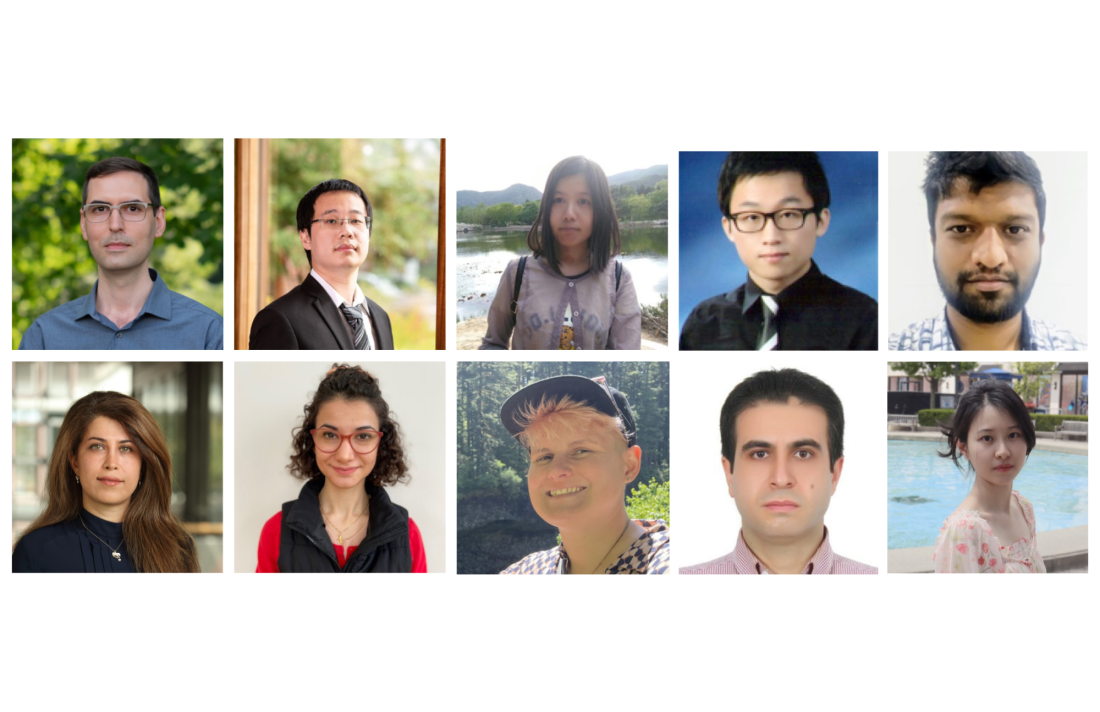
For many outside of higher education, the key roles at colleges and universities are clear. There are professors, there are students, and there is a staff who supports both.
But those who work in research institutions know there is also another group of professionals who serve a critical role in advancing a university’s mission and achieving its research goals: postdoctoral scholars — or postdocs for short.
The National Postdoctoral Association recognizes the third week of September as National Postdoc Appreciation Week, and this year, the University of Virginia designated the entire month of September as National Postdoc Appreciation Month.
UVA’s School of Data Science marked the occasion with a celebratory coffee hour, shining a spotlight on the 10 postdocs currently working at the School and the invaluable role they play.
Dean Phil Bourne was a postdoc himself early in his career and has seen firsthand how important postdocs have been to the School of Data Science since it was established in 2019.
“Postdocs are a vital part of the academic research ecosystem,” he said. “They are the intermediaries between research training as a graduate student and the fully independent role as a principal investigator.”
The National Postdoctoral Association defines postdocs as “individuals in a defined period of mentored training following the achievement of their terminal degrees.”
What does that mean in practice at the School of Data Science? It can look a bit different for everyone.
Tom Hartvigsen, an assistant professor of data science, leads a research group focused on machine learning and natural language processing. He hired two postdocs — Youngwoo Kim and Yash Kumar — to assist with the project.
Kim is developing content moderation systems that will detect toxic language on the internet, work that Hartvigsen said “is critical to providing safe online spaces for people from all walks of life.”
Meanwhile, Kumar is designing cutting-edge editing methods aimed at keeping large language models factually up-to-date, and Kumar’s model, Hartvigsen noted, is “already outperforming existing methods.”
“Postdocs are amazing members of productive research labs and play a critical role supporting students and principal investigators,” Hartvigsen said. “Their prior research experience lets them productively integrate into ongoing lab projects, explore directions they’re excited about, and provide priceless mentorship for students in the group.”
Stephen Baek, a Quantitative Foundation Associate Professor of Data Science, also employs two postdocs, Shahab Azarfar and Xinlun Cheng, and said they bring “not only exceptional scientific expertise and technical skills but also strong enthusiasm and professionalism that serve as a model for others.”

Like Hartvigsen with Kim and Kumar, Baek cited Azarfar’s and Cheng’s work with fellow students as emblematic of the many ways postdocs contribute to the life of a school.
“Both are highly motivated in mentoring graduate students, complementing my role as a research advisor,” Baek said.
For postdocs, the experience can provide invaluable opportunities to broaden the scope of their research work.
Azarfar joined the School in Data Science in 2022 with a more theoretical background in mathematical physics and says that his time at the School has significantly expanded his portfolio.
“The wide spectrum of projects that I have been involved with during the past two years has helped me to gain invaluable experience in the more applied domains. I think the transition from my theoretical backgrounds toward applied domains will be a crucial step toward my career target, which is going to be in the AI industry,” he said.
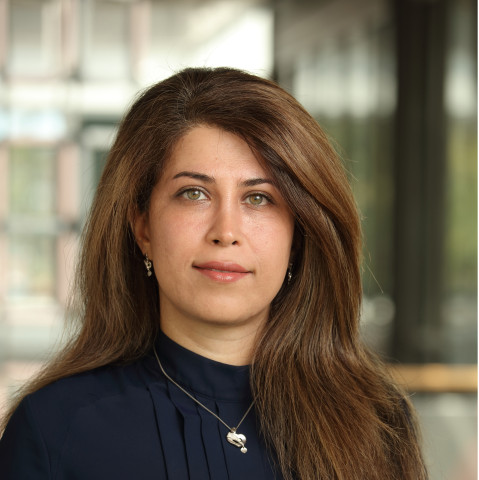
Postdoc Nazanin Moradinasab collaborates with Don Brown, senior associate dean for research and Quantitative Foundation Distinguished Professor in Data Science, on research focused on artificial intelligence and machine learning. She underscored Azarfar’s point about the benefits of serving as a postdoc.
“This experience is shaping my career by enhancing my skills and positioning me to make impactful contributions to both research and practical applications in AI and machine learning,” Moradinasab said.
It’s these types of opportunities that continue to draw accomplished scholars to the School as postdoctoral researchers.
One of the School’s newest postdocs, Ellen Simpson, joined the School of Data Science in August. She is working with assistant professor Mona Sloane and a team of researchers at Sloane Lab to examine how AI is changing how people gain access to the labor market.

“This postdoc is giving me the opportunity to explore a subject that is top of mind for many people in my field of human-computer interaction — AI fairness and ethics — and work with a great team in the Sloane Lab.”
The postdoctoral experience will continue to benefit postdocs themselves, the faculty they collaborate with, and the students they mentor. Perhaps the most apt description of what postdocs mean to the School of Data Science came from Bourne, the School’s dean since its founding.
Postdocs, he said, are “the engine that helps drive research within the School of Data Science.”
